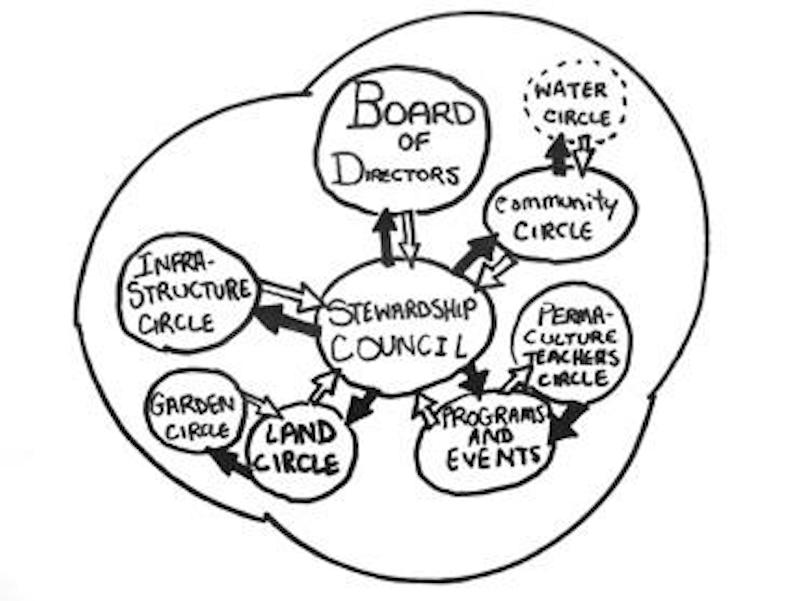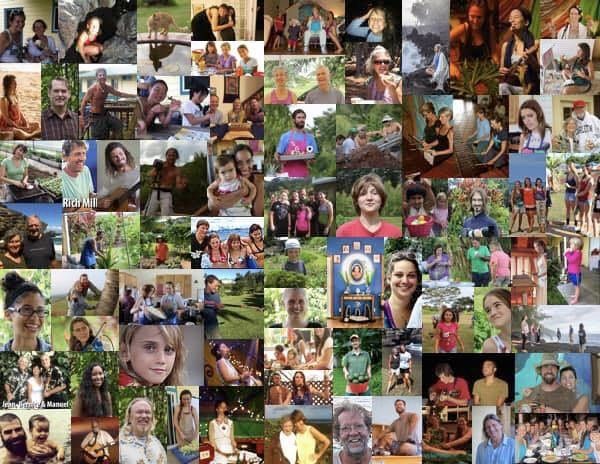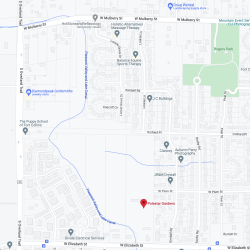Dharmocracy
by Michael Gornik
At our zoom meeting a few weeks ago, as mentioned above, Ted Rau gave a brief introduction on the fundamentals of sociocracy: an approach to group decision making and governance that seeks to foster inclusivity, collaboration, cooperation and productivity. As is so obvious with a quick glance at the news of the day, balancing human needs and values within a diverse group of people can be challenging if not impossible. A codified approach to decision making then, that makes an attempt at least, to consider fairness, inclusivity, and productivity, makes a lot of sense. It was an excellent exchange of ideas that prompted an essential question: What is Polestar’s long term plan for creating a harmonious and productive community; in short, what is our plan for governing ourselves?
As has been pointed out by many, a ‘system’ of governance is no guarantee of success; it is much more the character of the people involved, and the culture, that will determine the particular effectiveness of a group endeavor.
Harmony in human relations begins of course, with the individual, and an individual’s orientation to their own inner life and work. Nothing will make us more understanding, humble, whole, and easy to get along with than being honest with ourselves, knowing ourselves deeply, constantly seeking to improve ourselves, and reaching to find our fulfillment within our own selves. All the trouble starts when we project our desires and frustrations (about what is essentially an inner process), on everyone and everything around us. One who can truly do this is sufficient to their own life; there is no one to ‘blame’ for anything and everyone to love. This may be an extremely high bar of attainment, yet even a small amount of progress in this direction improves our lives and the lives of those around us noticeably and is well worth the effort.
‘Conflict resolution’ is often a focus of governmental policies. Though not a bad idea and good to have a plan when things go south, our approach has been to focus as much energy as possible on constantly investing in positive relationships. What is it that makes us empathize, understand, connect, have goodwill and love for each other? (When these things are in play, cooperation is a breeze.) And what is it that which makes us estranged, fearful, judgmental of each other? Is it the stars, the results of our hidden past actions, what we had for breakfast that morning?! The problem is complex but the solutions are relatively simple. In a culture that values and supports inner development first; safety, authenticity, and openness naturally follow. Beyond this, it is a matter of constantly investing in those group activities (meditation, service, sharing food and other simple pleasures of life, play) – that allow that transcendent experience of human connection to flourish. We call this Divine Friendship.
We have made some progress on defining, in much more practical terms, Polestar’s legal plan for governance which includes the role of the non-profit, an HOA, and ‘circles’ (as sociocracy calls them) of influence and responsibility. This process needs much more attention so if you have interest and / or expertise and would be willing to get involved, please let us know!





